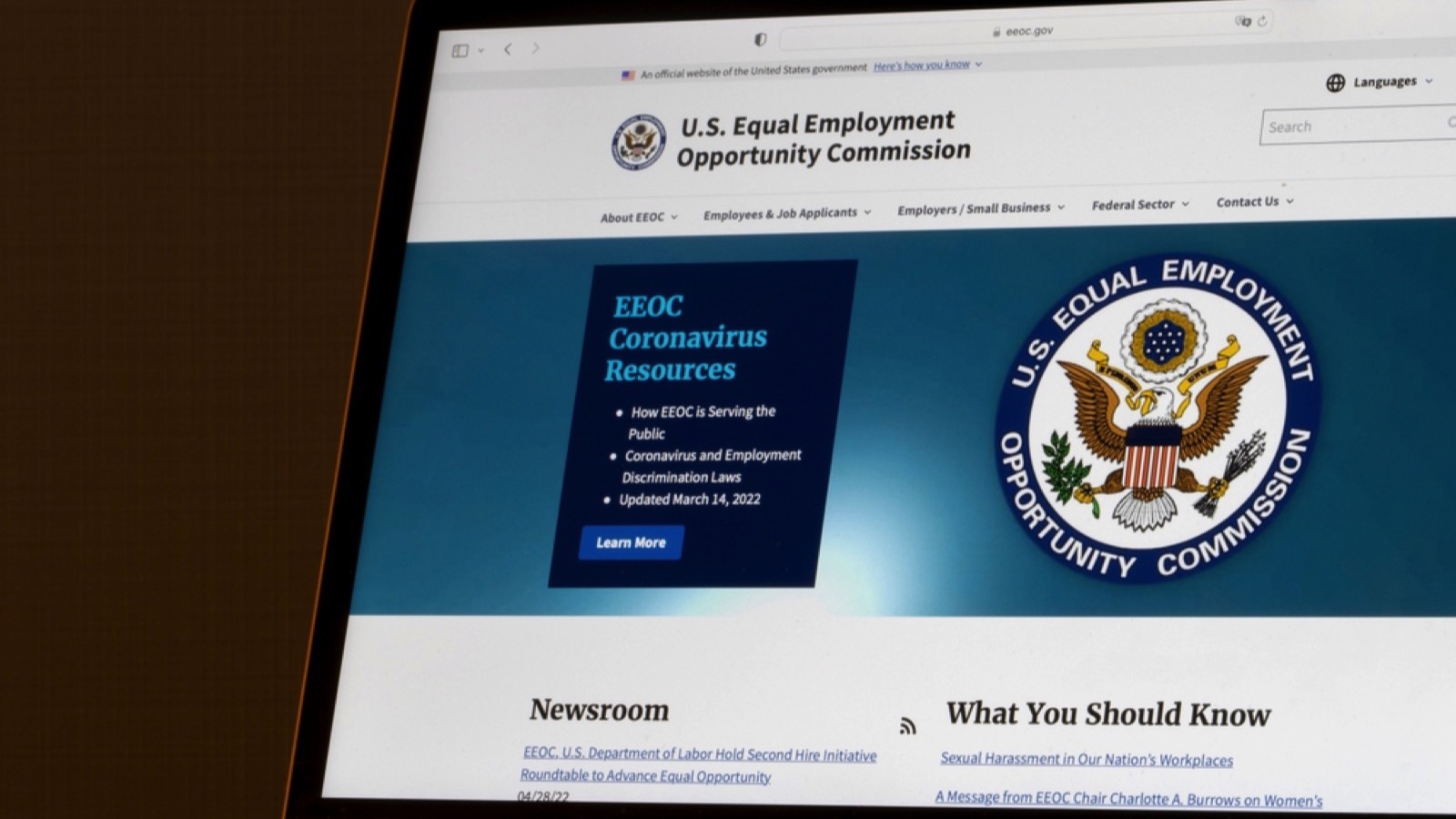Everyone has to follow the law — even the boss. Employment law outlines clear boundaries that employers must follow to avoid litigation.
While employers can set expectations and guidelines, they cannot run your life. Understanding your rights as an employee can help you strike the right work-life balance and enjoy your work.
Being aware of the boundaries of the employer-employee relationship can help you spot workplace discrimination and call out illegal corporate practices.
1. Irrelevant Personal Information

It’s illegal to ask about an employee’s personal information, such as age, relationship status, immigration status, medical history, family planning, or political affiliation. If your employers ask you these questions directly or indirectly, you are not required to answer and should file a complaint with human resources.
Other topics that should not be discussed include your criminal history (unless job-related), history of drug abuse, and salary history. Employers cannot ask you to divulge personal information about your coworkers.
2. Unpaid Work

Unless you’re an unpaid intern, all work you undertake for the employer must be paid. This includes the time spent on training sessions, attending mandatory meetings, and even waiting for work to begin.
You cannot be forced to waive your legal rights for a job. If you find an employer coercing you to work overtime without pay or asking you to take on unpaid tasks, you’re within your rights to decline.
3. Discriminatory Inquiries

Title VII of the Civil Rights Act of 1964 mandates that employers cannot discriminate against prospective employees based on age, race, color, religion, sexual orientation, or national origin.
Any inquiries regarding this information are illegal to ask in job interviews, or by your employers.
4. Signing Broad Non-Compete Agreements

Noncompete agreements limit an employee’s ability to work for a competitor for a stipulated amount of time after leaving the former company. Illegal non-compete contracts can make it impossible for employees to find work within their field after they leave.
Some states, like California, prohibit noncompete agreements, while others restrict the use of broad noncompete contracts. To safeguard your rights, read the fine print before signing any such contract.
5. Non-Required Credit Checks

Employers cannot ask for credit checks as part of their screening process for job applications unless it is job-related. Asking for credit checks without justification violates fair employment laws, such as the Fair Credit Reporting Act (FCRA) and Title VII of the Civil Rights Act of 1964.
Employers need your express consent to conduct any credit screenings. Even then, you must be given the right to dispute any inconsistencies.
6. Work in Unsafe Conditions

Employers are legally obligated to provide all employees with a safe working environment. Unsafe working conditions can include physical hazards, as well as offensive conduct.
Many states require companies to have their managers and supervisors undergo sexual harassment training. Safety equipment training is compulsory for companies working in the construction sector. Employers are also responsible for promptly and effectively dealing with situations that can harm any employee.
7. Pay Less Than Minimum Wage

Employers must pay nonexempt employees at least the minimum hourly wage by law. The Federal minimum hourly wage is $7.25, but many states and cities have a higher minimum wage requirement.
Employers cannot count commissions and tips toward the minimum hourly wage.
If you are asked to work at a rate below the minimum wage, you are within your rights to ask for what you’re due. You should also avoid being paid in cash or off the books.
8. Work Overtime or off the Clock

Employers cannot ask nonexempt employees covered by the Fair Labor Standards Act to work outside their working hours. So, if an employer asks you to prep before working hours or clean up afterward, you can decline or ask for compensation for the additional time.
Nonexempt employees are also not obligated to answer work emails, calls, or texts after work hours.
9. Retaliate Against Reporting Violations

If you report illegal activities in the workplace, your employer cannot retaliate against you. It is unlawful for employers to demote, fire, or take disciplinary action against whistleblowers.
However, whistleblower laws and claims will only protect employees who report illegal activity like fraud or corruption. Complaining about a rude boss doesn’t fall under the jurisdiction.
10. Forbid Salary Discussions Between Coworkers

Employers cannot dictate what you can and cannot discuss with your coworkers, especially if it relates to your salary. Prohibiting salary discussions in person or online can be considered an illegal attempt to prevent workers from organizing or unionizing.
This is against the National Labor Relations Act (NLRA) and gender equality laws, as employees cannot gauge any salary discrimination otherwise.
11. Ask About Union Memberships

The NLRA safeguards employees’ rights to form, join, or assist labor organizations such as unions. Employers are not allowed to ask if you are a member of a union organization, as that can be considered an attempt to dissuade employees from participating in union-related activities.
Interest in employees’ union affiliations can also be viewed as unlawful monitoring of their activities. Even subtle inquiries or actions that discourage employees from participating in unions are in violation of the NLRA.
12. Demand Medical Information

Unless you give them your written consent, employers cannot ask you for your medical information. Medical privacy is protected by many federal and state laws, which means you don’t need to share any details unless you want to.
Medical privacy also covers pre-employment physicals as well. If a physical exam is unrelated to your job description, an employer cannot ask for it.
13. Inquire About Disabilities

The Americans with Disabilities Act (ADA) prohibits employers from asking about an employee’s disability status without any legitimate reason. Thus, asking about an employee’s disability status without any legitimate reason may be considered discriminatory and unlawful.
Asking about employees’ disabilities and/or asking them to undergo medical checkups goes against medical privacy and equal opportunity rights and laws as well.
14. Ask For Your Social Media Passwords

Your social media accounts are private and protected under privacy laws. Employers cannot ask you to share your social media passwords or expect access.
You can decline and report the offense if an employer asks you to share your social media passwords or use your accounts for business-related activities without your consent.
15. Work Without Breaks

State labor laws outline specific break requirements for employees. Employers cannot ask employees to work through their breaks or not take them at all.
Work breaks are considered a part of your workday, so if an employer refuses to pay for time spent at mandated breaks, you can report them.
12 HARDEST PARTS OF GETTING OLDER – THAT NOBODY PREPARES YOU FOR

While some parts of aging are pretty well-known, like going grey or getting tired, some aspects are rarely discussed. Here are some of the most challenging parts of getting older that nobody wants to talk about.
12 HARDEST PARTS OF GETTING OLDER – THAT NOBODY PREPARES YOU FOR
45 SURPRISING WAYS TO MAKE AN EXTRA $500 A MONTH

Who couldn’t use an extra $500 a month? Here are 45 legitimate and realistic ideas you may not have thought of to add some extra cash to your wallet.
45 SURPRISING WAYS TO MAKE AN EXTRA $500 EVERY MONTH
17 RETIREMENT MISTAKES TO AVOID AT ALL COSTS

We wanted to know some of the biggest retirement mistakes that people are making, according to financial experts. What is most fascinating is that the majority of them have nothing to do with finances.
17 RETIREMENT MISTAKES TO AVOID AT ALL COSTS
